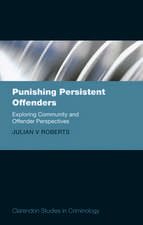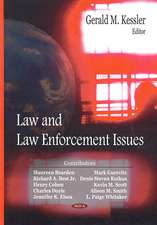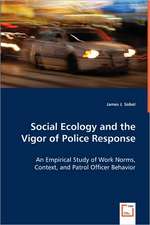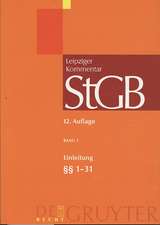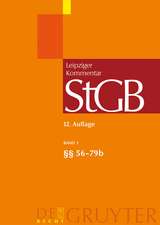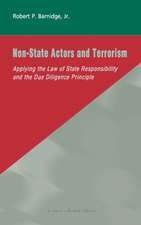Sharing Transboundary Resources: International Law and Optimal Resource Use: Cambridge Studies in International and Comparative Law, cartea 23
Autor Eyal Benvenistien Limba Engleză Hardback – 3 apr 2002
Din seria Cambridge Studies in International and Comparative Law
- 9%
 Preț: 731.44 lei
Preț: 731.44 lei -
 Preț: 176.91 lei
Preț: 176.91 lei -
 Preț: 200.33 lei
Preț: 200.33 lei - 9%
 Preț: 661.94 lei
Preț: 661.94 lei -
 Preț: 231.74 lei
Preț: 231.74 lei -
 Preț: 233.37 lei
Preț: 233.37 lei - 9%
 Preț: 661.90 lei
Preț: 661.90 lei -
 Preț: 201.39 lei
Preț: 201.39 lei -
 Preț: 230.94 lei
Preț: 230.94 lei - 9%
 Preț: 1013.73 lei
Preț: 1013.73 lei - 9%
 Preț: 765.90 lei
Preț: 765.90 lei -
 Preț: 237.53 lei
Preț: 237.53 lei - 9%
 Preț: 773.84 lei
Preț: 773.84 lei -
 Preț: 329.28 lei
Preț: 329.28 lei - 14%
 Preț: 793.62 lei
Preț: 793.62 lei -
 Preț: 238.11 lei
Preț: 238.11 lei - 9%
 Preț: 596.72 lei
Preț: 596.72 lei - 9%
 Preț: 593.36 lei
Preț: 593.36 lei -
 Preț: 209.39 lei
Preț: 209.39 lei - 9%
 Preț: 917.65 lei
Preț: 917.65 lei -
 Preț: 239.72 lei
Preț: 239.72 lei -
 Preț: 238.11 lei
Preț: 238.11 lei - 11%
 Preț: 639.92 lei
Preț: 639.92 lei -
 Preț: 350.03 lei
Preț: 350.03 lei - 14%
 Preț: 784.65 lei
Preț: 784.65 lei -
 Preț: 310.86 lei
Preț: 310.86 lei - 14%
 Preț: 731.56 lei
Preț: 731.56 lei - 14%
 Preț: 698.80 lei
Preț: 698.80 lei - 14%
 Preț: 700.76 lei
Preț: 700.76 lei -
 Preț: 288.04 lei
Preț: 288.04 lei - 14%
 Preț: 757.69 lei
Preț: 757.69 lei - 14%
 Preț: 721.96 lei
Preț: 721.96 lei -
 Preț: 284.78 lei
Preț: 284.78 lei - 11%
 Preț: 642.00 lei
Preț: 642.00 lei - 14%
 Preț: 896.01 lei
Preț: 896.01 lei -
 Preț: 358.28 lei
Preț: 358.28 lei - 9%
 Preț: 662.73 lei
Preț: 662.73 lei - 14%
 Preț: 759.18 lei
Preț: 759.18 lei - 14%
 Preț: 703.42 lei
Preț: 703.42 lei -
 Preț: 363.28 lei
Preț: 363.28 lei -
 Preț: 464.33 lei
Preț: 464.33 lei - 14%
 Preț: 786.15 lei
Preț: 786.15 lei
Preț: 728.05 lei
Preț vechi: 846.57 lei
-14% Nou
Puncte Express: 1092
Preț estimativ în valută:
139.31€ • 145.84$ • 115.27£
139.31€ • 145.84$ • 115.27£
Carte tipărită la comandă
Livrare economică 05-19 aprilie
Preluare comenzi: 021 569.72.76
Specificații
ISBN-13: 9780521640985
ISBN-10: 0521640989
Pagini: 300
Dimensiuni: 152 x 229 x 17 mm
Greutate: 0.61 kg
Editura: Cambridge University Press
Colecția Cambridge University Press
Seria Cambridge Studies in International and Comparative Law
Locul publicării:Cambridge, United Kingdom
ISBN-10: 0521640989
Pagini: 300
Dimensiuni: 152 x 229 x 17 mm
Greutate: 0.61 kg
Editura: Cambridge University Press
Colecția Cambridge University Press
Seria Cambridge Studies in International and Comparative Law
Locul publicării:Cambridge, United Kingdom
Cuprins
Introduction; 1. The need for collective action in the management of transboundary resources; 2. States as collective actors; 3. The transnational conflict paradigm: structural failures and responses; 4. Transnational institutions for transboundary ecosystem management: defining the tasks and the constraints; 5. The structure and procedure of institutions for transboundary ecosystem management; 6. The development of positive international law on transboundary ecosystems: a critical analysis; 7. Efficiency, custom, and the evolution of the law; 8. Conclusion.
Recenzii
'This highly readable, intelligent, insightful, and deeply informative book will leave its mark on subsequent scholarship in the field … Benvenisti has made important pathbreaking contributions with this book.' Connecticut Journal of International Law
Notă biografică
Descriere
This book, first published in 2002, considers why states often use transboundary resources inefficiently, looking ahead to potential resolutions.

